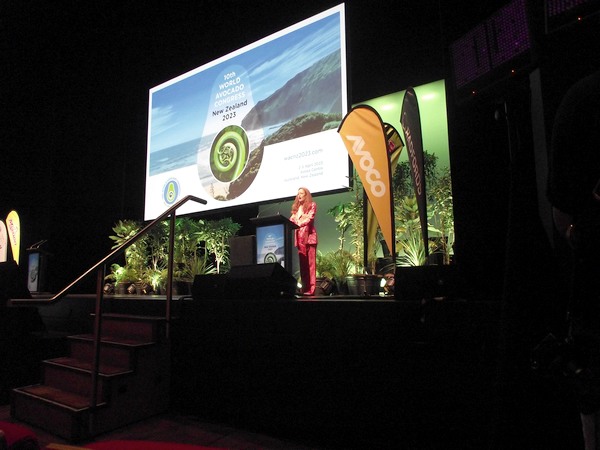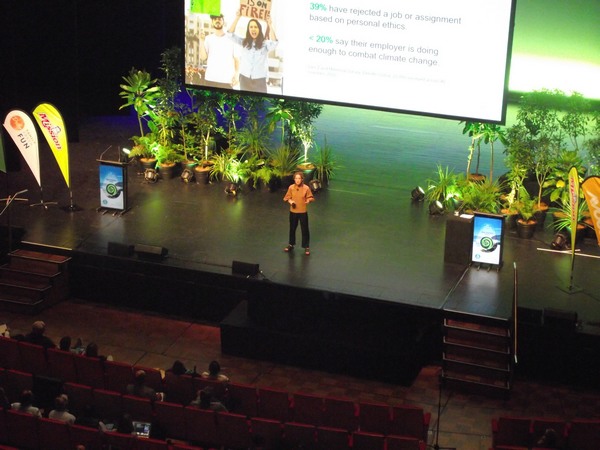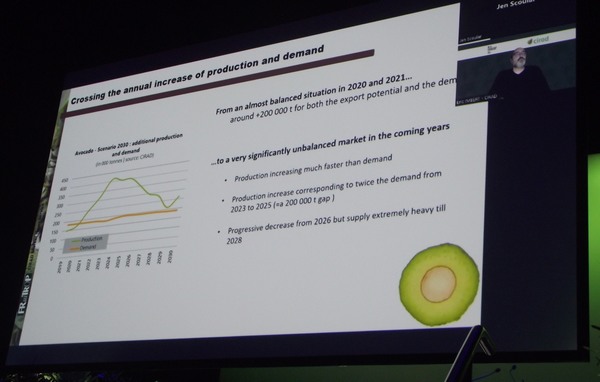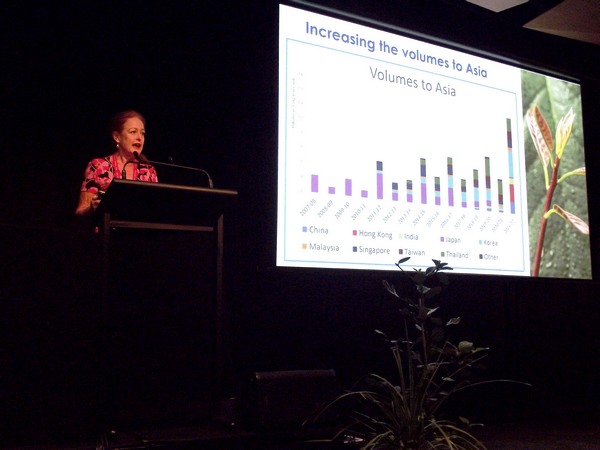Increasing market demand for avocados, ahead of an expected production oversupply, has been one of the issues front and centre of the 10th World Avocado Congress that is taking place in Auckland, New Zealand this week.
President of the World Avocado Congress Committee and CEO of New Zealand Avocado, Jen Scoular says 33 countries are represented at the event, all facing similar challenges regardless of where they come from across the globe.
"I think we all know that there is not one country out there at the moment that is having a great time with avocados," she said. "We had Eric Imbert as a keynote speaker, knowing he was going to tell us that we had an oversupply coming and all of us are saying what are we going to do about it - and can we do it collectively? We need to leverage the fact that we are all here and want to have a conversation."

Photo: Jen Scoular welcoming delegates on behalf of New Zealand Avocado
A key theme or motto of the event, according to Ms Scoular is "respect for the people, respect for the environment and respect for the future", which largely centres around the sustainability message that has been a focus for so many of the presentations.
"I'm very proud. We have had such lovely feedback and the commitment of people to come to New Zealand in this challenging time for the avocado sector," Ms Scoular said. "We are having involved conversations; the participation is amazing and the energy levels are terrific. It's all about the avocado business and how we go forward taking better steps for the world and that is coming out of so many of the presentations, which is phenomenal. Florence Van Dyke put it wonderfully, in her presentation on sustainability, and she told us not to underestimate the power of everyone being in the same room; in the beverage industry you wouldn't expect Coca-Cola and Pepsi to be in the same room together, let alone saying what do we do about sustainability together and the future of the industry."

Photo: Florence Van Dyke speaking about 'Sustainability from a commercial angle'.
Ms Scoular added, from a country point of view, that it has been a tough time for New Zealand avocado growers recently as well, from the COVID-19 and the shipping issues, getting supply and demand right in markets globally, as well as weather issues.
It has also been a wet period recently in New Zealand, with Cyclone Gabrielle impacting some mid-North growers including trees down in some areas, and providing tough growing conditions for avocado growers generally. Ms Scoular says that this is why conversations about climate change at this congress are so important.
"It is changing - it's a matter of what we are going to do about it. (Challenges are) something that have happened around the world, and in horticulture, we know that there are ups and downs but there is still an amazing opportunity for avocados," Ms Scoular said. "Lain Jager put it so well that avocados are so on trend; they have good fat, protein, carbohydrate, 19 vitamins and minerals - and the world is needing nutrients. The opportunity is immense; the road ahead is rocky, but if we can collectively work on how to increase market demand and get quality in our supply chain right, we can grow the industry together and benefit all along the value chain."

Photo: A slide from Eric Imbert's virtual presentation; an Overview of global supply and demand
In his presentation via video link, Eric Imbert, a lead researcher for CIRAD, a French agricultural research centre, explained to delegates that imports of avocados were concentrated in two markets: the United States and Europe, which accounted for 80 per cent of the market. That left the rest of the world with a 20 per cent share of international avocado imports and provides many opportunities for countries to explore, including Asia.
"New Zealand Avocado developed the 'Triple Active' (promotion)," Ms Scoular said. "We know that avocados are healthy, so we asked ourselves, what particularly appeals across six Asian markets? We asked 1,000 consumers and it came back with three main things: Omega3, Folate and Antioxidants. We then developed this campaign to be supported by Respectful Harvest, so saying that we are growing safe, healthy food that is sustainable. We launched that 18 months ago in Asia when we had more volume going there, and that has resonated and is vibrant. We know that we need to increase demand in Asia, and if we can do that collaboratively with other countries, we'd be happy to do that."

Apart from sustainability, there were several other themes and topics on day two of the congress, which also heard from speakers in the field of soils and biology, fertilisers and nutrition, post-harvest, propagation and agritech.
Meanwhile, the winner of the rights to the next World Avocado Congress will be announced tomorrow on the final day of the Congress, before the gala dinner. Held every four years, previous congresses have been hosted in Colombia, Peru, Australia and Chile - and NZ beat Mexico, the largest avocado exporter in the world, as well as Kenya, to host this year's event.
